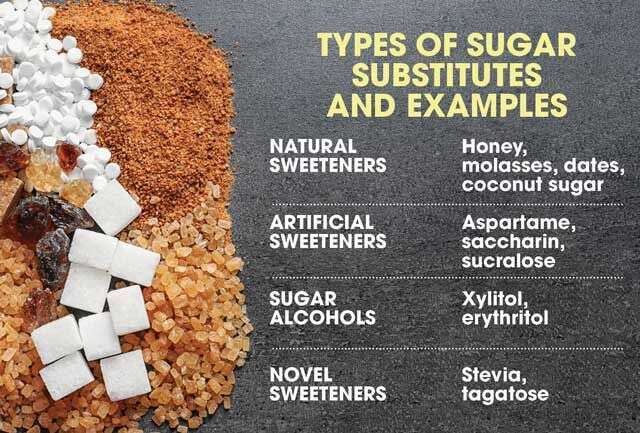In today’s health-conscious world, many individuals are looking for alternatives to sugar in their diets. With concerns about obesity, diabetes, and other health issues, the World Health Organization (WHO) plays a significant role in guiding public health policies. In this article, we will delve into the concept of sugar substitutes and examine the WHO’s stance on their usage. Read on to discover how sugar substitutes can be a valuable tool for a healthier lifestyle.
Sugar Substitutes: WHO’s Perspective for a Healthier Diet

Understanding Sugar Substitutes
Sugar substitutes, also known as artificial sweeteners or non-nutritive sweeteners, are chemical compounds that provide a sweet taste without the added calories of regular sugar. These substitutes are many times sweeter than sugar, requiring smaller amounts to achieve the desired sweetness. They are commonly used in beverages, baked goods, and other food products marketed as “sugar-free” or “diet” options.

The WHO’s Perspective
The World Health Organization acknowledges the potential benefits of sugar substitutes. They can offer a way to reduce sugar intake, which aligns with the WHO’s recommendations to limit the consumption of free sugars to less than 10% of total energy intake. Free sugars include those added to food and beverages by manufacturers, as well as sugars naturally present in honey, syrups, and fruit juices.
Sugar substitutes are generally considered safe for consumption by various regulatory authorities, including the WHO. Extensive research has been conducted to assess their potential health effects, and the findings suggest that when consumed within acceptable daily intake levels, they pose no significant risk to human health.
Benefits of Sugar Substitutes
- Calorie Reduction: Sugar substitutes provide a sweet taste without contributing to calorie intake, making them a viable option for weight management or those aiming to reduce their calorie consumption.
- Blood Sugar Control: Individuals with diabetes or those monitoring their blood sugar levels can benefit from using sugar substitutes. These sweeteners do not raise blood glucose levels, making them suitable for maintaining stable glycemic control.
- Dental Health: Sugar substitutes do not promote tooth decay as regular sugar does. By using these alternatives, you can enjoy sweet-tasting foods and beverages without compromising your dental health.
Common Sugar Substitutes
- Aspartame: This low-calorie sweetener is commonly used in diet sodas, desserts, and sugar-free chewing gum.
- Saccharin: A non-caloric sweetener found in tabletop sweeteners, beverages, and various processed foods.
- Sucralose: This non-caloric sweetener is heat stable and used in a wide range of food products, including baked goods, beverages, and dairy products.
- Stevia: Extracted from the Stevia plant, stevia is a natural sugar substitute that can be used in cooking, baking, and as a tabletop sweetener.
Cautionary Notes
While sugar substitutes offer advantages, it is essential to use them in moderation. Some people may experience gastrointestinal discomfort or laxative effects when consuming large quantities of certain sugar substitutes. It is always recommended to follow the usage guidelines provided by the manufacturers and consult a healthcare professional if you have specific concerns or medical conditions.
Conclusion
The World Health Organization recognizes sugar substitutes as a valuable tool for reducing sugar intake and maintaining a healthy diet. These alternatives can help in calorie reduction, blood sugar control, and dental health. Remember to use sugar substitutes in moderation and consult a healthcare professional if you have specific concerns. By incorporating sugar substitutes wisely into your diet, you can enjoy sweet-tasting foods and beverages while taking a step towards a healthier lifestyle.
Read also: When Fighting Anxiety Is Fighting Yourself
Daily Habits That Boost Your Positive Mental Health
Healthy vegatables for health: 5 surprising benefits of Kale










Leave a Reply